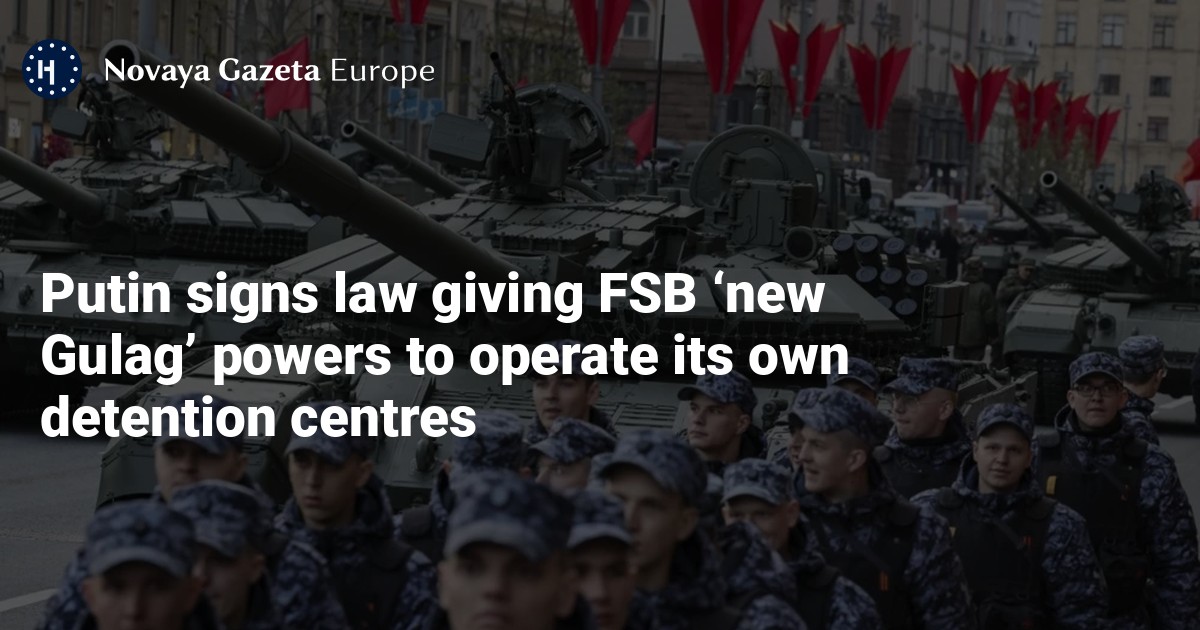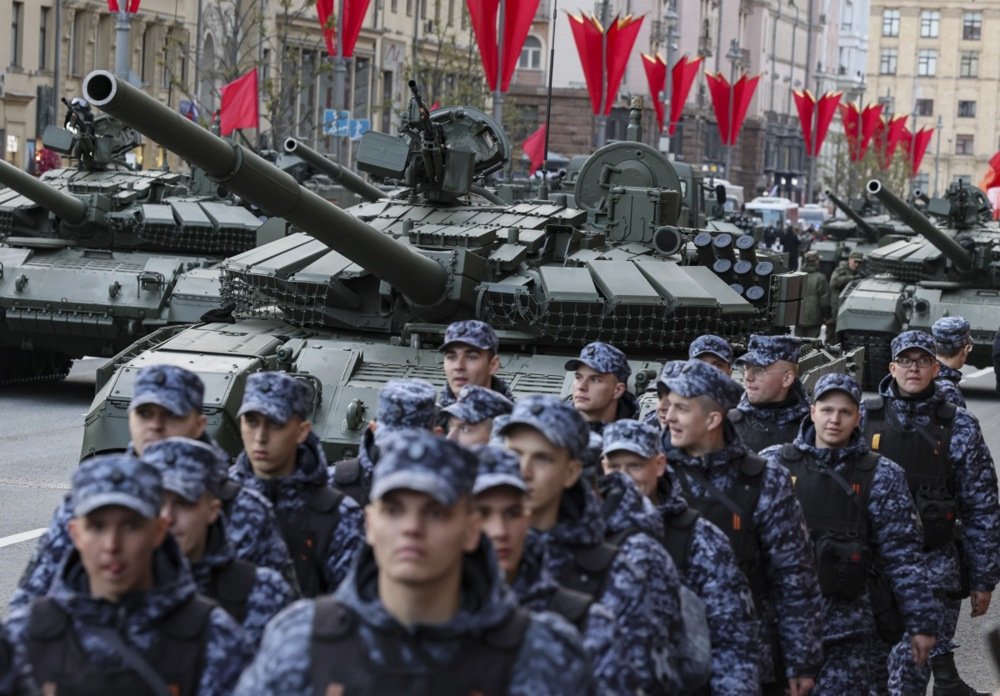




Russian police officers keep watch as military vehicles take part in a rehearsal for the annual military parade ahead of the Victory Day celebrations in Moscow, 3 May 2025. Photo: EPA/SERGEI ILNITSKY
A new law empowering Russia’s Federal Security Service (FSB) to operate its own pretrial detention centres was signed into effect by Vladimir Putin on Wednesday, ending the Justice Ministry’s nearly two-decade-long exclusive control over detainee handling — a system established in the 2000s to align with European legal norms.
The law, which will take effect on 1 January 2026, allows the FSB to create and operate its own facilities, in which it can establish its own standards for conditions in which pretrial detainees will be held, transported, and investigated.
The measure will affect detention facilities where individuals suspected of treason, espionage, terrorism, or “extremism” are being held, in order, according to an explanatory note accompanying the legislation, to better “protect state secrets” during the ongoing invasion of Ukraine.
According to researchers Andrey Soldatov and Irina Borogan, experts on Russia’s security services, the law represents “the basis for a new Gulag”, and could lead to increased repression in the country.
In addition to allowing the FSB to create its own facilities, the law will return at least seven pretrial detention centres previously operated by the Justice Ministry to the FSB’s legal control, according to Meduza, an independent news outlet, including the notorious Lefortovo pretrial facility in Moscow.
The seven pretrial detention facilities were initially transferred to control of the Justice Ministry’s Federal Penitentiary Service in 2006, in order to meet the legal standards of the Council of Europe, of which Russia was a member from 1996 until 2022.
In February, State Duma Deputy Vasily Piskaryov, one of the bill’s authors, criticised the 2006 decision, stating that it had been “taken at the instigation of Western ‘partners’” to signal Russia’s “compliance” with European values, and never contributed to “increasing the level of [Russia’s] security”.
However, as lawyer Yevgeny Smirnov previously told Novaya Gazeta Europe, the seven facilities had long been under de facto control of the FSB, so while it does give the agency additional powers, such as the ability to limit detainees’ access to lawyer, the new law is partially a formalisation of this arrangement.
